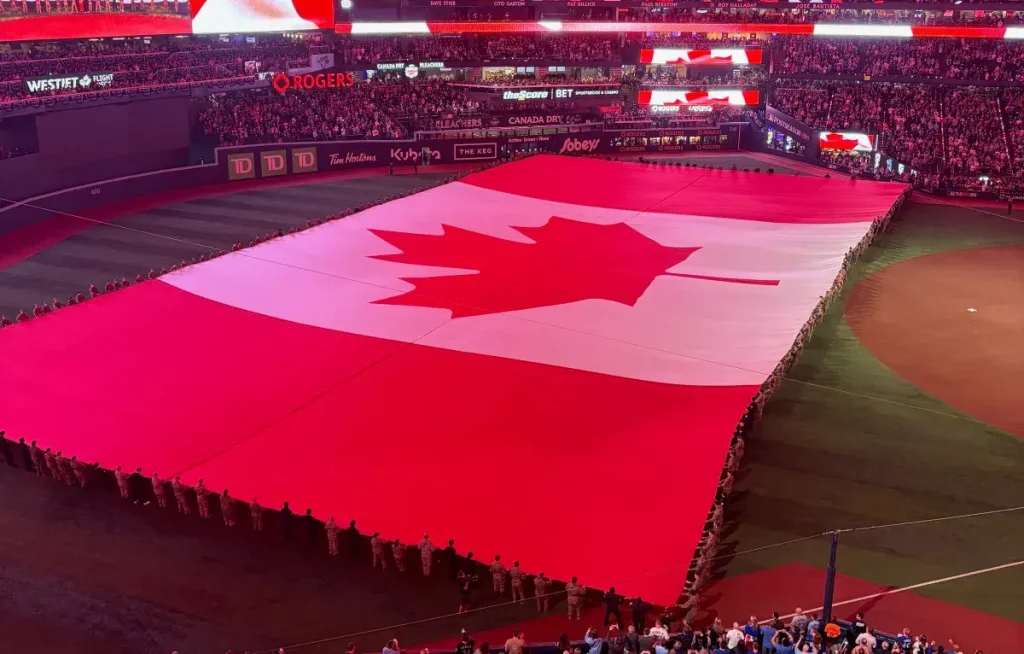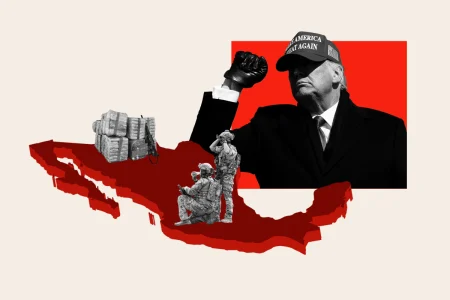A National Pastime in Canada: The 2025 Blue Jays and Their Country’s Heart
When the Toronto Blue Jays hosted Game 1 of the 2025 American League Championship Series, it wasn’t just another playoff baseball game – it represented something deeper for an entire nation. As Canada’s sole Major League Baseball team, the Blue Jays carry a unique burden and privilege: they embody the baseball dreams of a country spanning six time zones. Their first ALCS appearance since 2016 brought renewed hope for a third World Series title, following their back-to-back championships in 1992 and 1993. The atmosphere at Rogers Centre captured this sentiment perfectly, with a massive Canadian flag stretched across the outfield during “O Canada,” met with thunderous cheers rivaling those for home runs. Even the typically dominant Toronto Maple Leafs hockey team adjusted their schedule to accommodate baseball games, showing the rare moment when baseball took center stage in Canada’s largest city.
The international context of the 2025 ALCS added complexity beyond the diamond. Relations between the United States and Canada had grown tense following Donald Trump’s return to the White House. His controversial comments about Canada potentially becoming “the 51st state,” combined with fluctuating tariffs, created political friction along the world’s longest undefended border. Mark Carney, who became Canada’s Prime Minister after winning an April snap election, rose to power partly by addressing what many Canadians perceived as an existential threat from their southern neighbors. This political backdrop transformed the Blue Jays’ playoff run into something more symbolic for many fans. Outside Rogers Centre, Alejandro Lameiro waved a Canadian flag, explicitly stating the series was an opportunity “to prove to Donald Trump that Canada is not going to be the 51st state.” For some supporters, success in “America’s pastime” represented a unique form of national pride during uncertain diplomatic times.
Personal stories from fans revealed deep connections to the team that transcended mere sports fandom. Cindy Marshall, who served as a bat girl during the Blue Jays’ inaugural 1977 season, traveled two hours from Trenton, Ontario, with her daughter Julianne to attend the game. “It’s America’s pastime, but, I don’t know, Canada’s pretty good at it,” Julianne remarked, adding that “it’s kind of nice right now, when we’re not the 51st state, to maybe steal America’s pastime.” Joshua Jameus made an even longer journey from Sault Ste. Marie, drawing parallels to Canada’s recent victory over the United States in the 4 Nations Face-Off hockey tournament: “We beat the USA in 4 Nations, so time for number two, for our second win.” These sentiments echoed a broader feeling that the Blue Jays’ success could provide a much-needed “boost of adrenaline” for the country during politically charged times.
Not every fan viewed the series through a geopolitical lens, however. Morgan Grant flew over 2,000 miles from Didsbury, Alberta, simply focused on baseball rather than border tensions. “Hockey’s our sport,” he acknowledged, “We spend so much time watching, talking hockey, and the Blue Jays always played second fiddle to hockey, but not anymore. Right now, they’re playing first, and it’s pretty exciting.” For Trevor Miller from Brampton, the celebration was more about civic pride than international rivalry: “It’s all about the city. It’s more of a city thing than it is a border thing.” He noted that the team comprises players from many countries, not just Canadians, making national distinctions less relevant to his enjoyment. This perspective highlighted how sports fandom often operates on multiple levels simultaneously – representing city, region, nation, and simply love of the game itself.
The unique position of being Canada’s only MLB team creates what Miller described as an “almost small-town feel” despite the country’s vast geography. “Because we only have one team up here in Canada, you get coast to coast, everybody… from Newfoundland to Vancouver, that are all rallying around it, and that becomes a greater thing,” he explained. This national unity was visible in the Rogers Centre stands, where fans displayed symbols from provinces and territories across Canada. The team’s manager, John Schneider, explicitly acknowledged this cross-country support, saying, “I think that fans in British Columbia, I hope, are Blue Jay fans before they’re Seattle fans.” For a team that had finished the 2024 season 14 games below .500, this widespread backing from an entire nation provided additional motivation as they sought their first championship in over three decades.
Despite falling behind with a 3-1 loss in Game 1, the Blue Jays’ magical run continued to inspire Canadians from all walks of life. Alicia Kopores, who traveled approximately 2,000 miles from Calgary to witness the playoffs firsthand, connected the current team to her childhood memories: “In 1992, 1993, I was 10, 11 years old, and I made my parents buy me a Blue Jays shirt that was way too big. But I needed to have one. I just remember so many nostalgic things… I would stand in front of the TV watching and cheering.” For her, the 2025 playoff appearance represented “little 10-year-old-girl dreams come true.” Manager Schneider remained confident after the opening defeat, noting, “We’re trying to figure out a way to win four, and I think our guys will be up for the challenge.” This resilient attitude mirrored that of the fan base – a nation whose baseball dreams, decades in the making, weren’t about to end without a fight.














